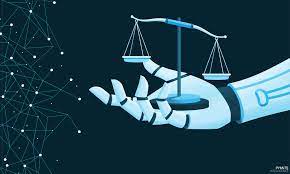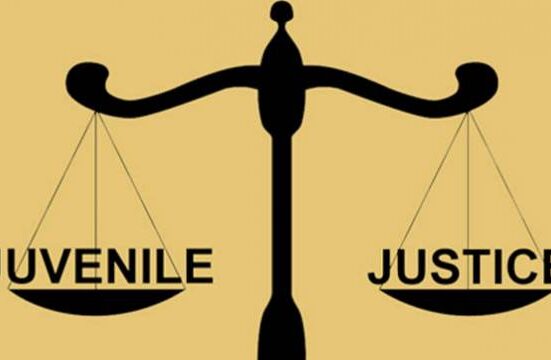The article “From Contract to Con: NRI Sham Marriages Explained” is written by Anya Jeet, a third-year law student at the University of Lucknow.
Introduction
Have you ever wondered if Artificial Intelligence (AI) could work in the legal field? Imagine if it could automate those repetitive manual tasks that lawyers and practitioners often spend hours on. By doing so, AI could free up their time, allowing them to focus on more meaningful and complex aspects of their work. AI has become increasingly important in different industries such as healthcare; retail & e-commerce; media & entertainment and many others, bringing automation and efficiency. Similarly, in the legal field, AI is also starting to have a big impact. It has shown remarkable progress in tasks that have historically required considerable time and resources such as legal research, document analysis, document drafting and even predicting case outcomes based on historical data. It is already being applied by law firms and practitioners.
According to recent studies, nearly 44% of legal work could be automated in the future. Legal researchers believe that the industry most exposed to the new AI is legal services. This staggering statistic was concluded by researchers from Princeton University, University of Pennsylvania, and New York University. Imagine a scenario where AI algorithms analyze vast amounts of legal data, extracting relevant information and providing valuable insights in a fraction of the time that would take a human hour. This could transfigure legal research, making it more efficient and accurate. Additionally, AI-powered tools could assist in contract review, identifying potential risks or inconsistencies that may have been overlooked. By automating these tasks, lawyers can focus on higher-value activities, such as counselling clients, negotiating deals, and crafting legal strategies.
Artificial Intelligence in the legal profession
AI acts as an essential tool for law firms but at the same time, it acts as a threat to lawyers working under that law firm. Law firm owners might indeed be excited about the potential of AI services for legal writing. With AI capable of generating legal arguments in seconds, it could save them time and money. If AI becomes an essential tool for law firms, lawyers’ workloads are going to be greatly reduced. It is a matter of time until AI can write fully briefed arguments which may take a lawyer hour. AI doesn’t ask for a salary or bonus and doesn’t need any benefits, moreover, it doesn’t sleep or eat so it can continuously create output for the law firms. AI allows law firms to achieve more with less. In a groundbreaking development in the United States, artificial intelligence has outperformed the majority of law school graduates in the bar exam, a rigorous assessment that aspiring lawyers must pass to practice law. According to a recent experiment conducted by two law professors and two professionals from legal technology company Casetext, the latest Microsoft-backed OpenAI model, GPT-4, achieved a remarkable score of 297 on the bar exam. This achievement positions GPT-4 in the top 10% percentile of real test takers and meets the standard for admission to the legal profession. Meanwhile, lawyers go through years of rigorous education to reach a point where they are easily able to understand and decipher legalese.
So, is it fair to say that it’s not far from where AI might overtake the job of a lawyer? Well to answer that, AI is not going to replace lawyers, it is lawyers who use AI are going to replace lawyers who don’t. AI, used by lawyers allows them to practice at the top of their degree by assisting them. Certain tasks might be assisted by an AI such as document review, or sifting through extensive databases of legal information. However, a lawyer encompasses a broad range of responsibilities and tasks. They have a deep understanding of legal concepts, critical thinking skills, and the ability to tailor arguments to specific cases. They also possess the expertise to analyze complex situations and provide personalized advice to clients all aimed at providing legal counsel and representation which cannot be disregarded, for instance, client confidentiality and client counselling.
Limitations of Artificial Intelligence and the importance of human presence
AI cannot understand and empathize with human emotions, which is crucial in client counselling. Building trust, understanding delicate situations, and providing emotional support require human empathy and sensitivity, which AI cannot replicate. Client counselling involves discussing sensitive and confidential information, including personal matters and legal strategies. AI cannot maintain the same level of confidentiality and discretion as human lawyers, raising concerns about data privacy and security. AI cannot replace the human qualities and judgment required for effective client counselling and maintaining client confidentiality. Another big disadvantage of AI is that it cannot learn to think outside the box. AI is capable of learning over time with pre-fed data and past experiences, but cannot be creative in its approach. In the field of law, each case has different facts and circumstances which cannot be applied in all such related cases as precedents. Therefore, these tasks remain firmly within the realm of human expertise and responsibility in the legal profession. It’s crucial to recognize the value that lawyers bring to the table. Further, the legal profession relies heavily on human judgment, empathy, and creativity, which are not easily cloned by AI. There are also ethical considerations to ensure that AI-generated arguments are fair, unbiased, and comply with legal standards. A response provided by an AI tool may cause individuals to formulate skewed perceptions, anchoring to the first answer they are given. It allows us to disregard other potential solutions and limits us in our decision-making. This phenomenon is called as ‘anchoring effect’. The anchoring effect refers to people’s bias towards computer-generated numbers and data – a tendency already proven to be harmful in navigational contexts
While AI can enhance efficiency and productivity in the legal industry, it’s unlikely to completely replace a lawyer’s role in court. Instead, it can be seen as a valuable tool that assists certain tasks, allowing lawyers to focus on higher-value work and providing the best possible service to their clients. Until AI can get to a level of emotional intelligence, physical presence, and ability to instil trust in the people around it, then human lawyers can hold safe to their jobs. Only the clerical role of lawyers might be reduced to a large extent. Appearing and arguing a case before judges might be the only role lawyers play.
Moreover, judges have also employed artificial intelligence in the process of rendering judicial decisions. For the first time in India, a judge at the Punjab and Haryana High Court used the artificial intelligence (AI) chatbot, ‘ChatGPT’, to decide on a criminal case. The individual was accused of assault and murder and sought relief from imprisonment during the trial. As such, Judge Anoop Chitrkara asked ChatGPT ‘What is the jurisprudence on bail when the assailant assaulted with cruelty?’ It’s important to note that the court clarified that AI was not employed to determine the guilt of the accused, but solely to consider bail. However, this development raises concerns about potential risks associated with judges relying on AI outputs. The risk is induced by the fact that judges form AI’s output as an anchor which blurs their rational judgement. Judges, who ought to act as impartial, and forbearers of equality and neutrality, can themselves fall victim to a favourable bias towards the AI’s output.
Significance of AI in Indian legal frameworks
Indian Constitutional Courts have certainly been a deviation in incorporating technology into their day-to-day modus operandi. Be it the introduction of live streaming facilities for court proceedings, or the introduction of AI-enabled transcribers to record the oral arguments made in Court. It showcases the judiciary’s commitment to modernization. This idea of AI has been brought up for consideration to restore the effectiveness and efficiency of the Indian Justice Delivery System. With the increasing trends in the world of digitalization, this field of ‘Artificial Intelligence’ may help to reduce the number of pending cases.
Organizations like the Artificial Intelligence Association of India (AIAI), founded in 2009, play a crucial role in advancing AI development in the country. Despite India’s relatively early stage in AI adoption compared to Western counterparts, there is a long way to go for the country to realize the full potential and impact that AI can have on increasing the efficiency of different fields including the legal industry. The Indian Judicial System has also adopted AI to improve its functioning. The National Judicial Data Grid (NJDG) is a prime example of technology, including AI, being used to enhance the legal system’s operation in India. AI’s potential in legal prediction, analyzing past cases, and automating processes like e-notices and e-summons can alleviate the burden on the judicial system. AI has also been integral in holding virtual courts through e-courts and video-conferencing tools, as exemplified by the Live Transcription Project initiated by the Supreme Court of India.
The former CJI, Justice S.A. Bobde was addressing the Constitution Day function organized by the Supreme Court Bar Association (SCBA) on 26th November 2019 and in his speech, he said.– “We propose to introduce, if possible, a system of artificial intelligence. There are many things which we need to look at before we introduce ourselves. We do not want to give the impression that this is ever going to substitute the judges.” According to Justice S.A. Bobde, machines cannot replace humans specifically the knowledge and wisdom of judges. The deployment of the AI system will help reduce pendency and expedite judicial adjunction.
However, India’s stance on AI is relatively at an infant stage. India is gradually moving towards AI, however, there is still scope for advancement in the application of AI in the Indian legal industry. Independently, privately as well as organisations run by the government are researching and developing new techniques to ease the functioning of law. Artificial Intelligence (AI) is capable of mucking in with the judges by predicting vital information regarding an ongoing case based on past cases of a similar nature. An analysis of several details of the case like the number of accused in a case, date of filing of the charge sheet, number of witnesses examined during the evidence stage, and reasons for adjournments can be made available for the reasons which can help judges make better strategic decisions. However, it should not be solely relied upon for decision-making and giving judgements.
Conclusion
Man and machine will fuse harmoniously with the arrival of fully autonomous AI in law. Law firms will have to modify their strategies to incorporate AI in their day-to-day functioning. In return, AI will act as an invisible helping hand allowing the firms to take on more complex cases. Artificial intelligence (AI) can be a big help in making things faster and better in many areas, including law. It has the potential to make a big difference in how courts work in India, making justice quicker and more reliable. Using AI to help judges and lawyers could speed up trials by doing tasks faster and helping with decisions. This could mean cases are finished more quickly, helping to clear up the backlog of cases in courts.
But while AI can be really helpful, we need to be careful not to rely on it too much. It’s important that people still have a say and keep an eye on things. So, while AI can make justice faster and better, we shouldn’t forget the human touch in making sure things are fair and right.
Reference
https://pro.bloomberglaw.com/insights/technology/how-is-ai-changing-the-legal-profession
https://legal.thomsonreuters.com/blog/how-ai-is-transforming-the-legal-profession






Leave feedback about this